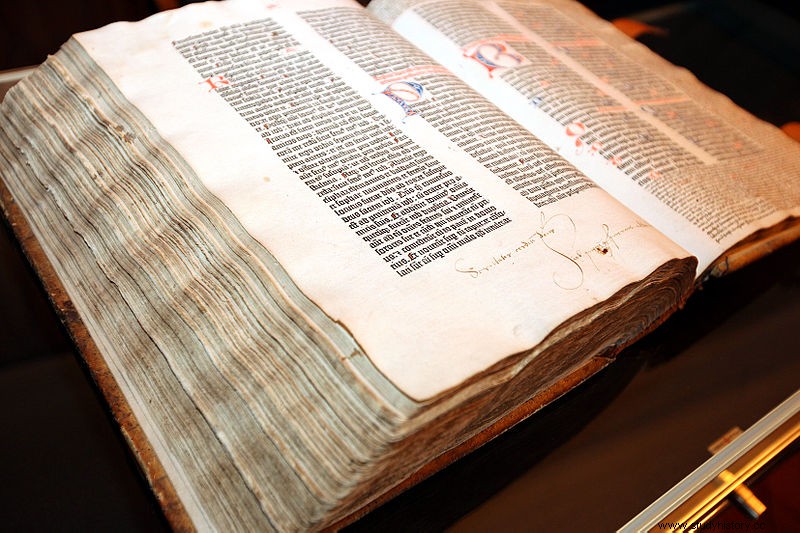- We are witnessing the rise of universities in Europe in the 13 th century. Thus, already, the copyist monks are called upon to carry out an increased production of books. An intellectual demand developed at the end of the Middle Ages.
- In addition, at the technical level, the mastery of iron became clearer at the beginning of the 15th th century. Mining, especially in Germany, is developing strongly.
- If the printing press was born at the time of the Reformation, it should be kept in mind that publishing was then very much controlled by power, whether civil or religious.
1454

Characters
Johannes Gutenberg
Procedure
We owe the final invention of the printed book to Gutenberg, even if various attempts have been made before that, especially in China. If Gutenberg tried to develop a technique in Strasbourg (1434-1439), it was in Mainz, with bookseller associates, that his first printed book was born. It is a Bible in Latin, printed in two columns. The Gutenberg Bible is based on the work of copyist monks:it strongly resembles a manuscript. The first books, printed before 1501, are thus called “incunabula”. The layout is similar to the manuscript; space is left for illustrations or initials, made by hand, to embellish the work.
The technique is based on xylographic engraving:it is a relief engraving (engraved wood or metal plate), in which Gutenberg has succeeded in associating mobile characters.
If today we tend to temper the expression “print revolution”, Gutenberg’s invention still marks a real break with the past. It took several months for the copyist to complete a single manuscript:the printing press of the modern era thus made it possible to accelerate the dissemination of knowledge in Europe, at lower cost.
Consequences
- This new technique is spreading throughout Europe. For France, there are printing works in Paris, Lyon and Toulouse.
- About 27,000 books were made before the end of the year 1500 in Europe.
- The printing press would unite the Reformation movement:Protestantism developed on the idea that the faithful should have direct access to the biblical text. We then understand the importance of the ability to disseminate the Bible and the precepts developed by Martin Luther to as many people as possible.
